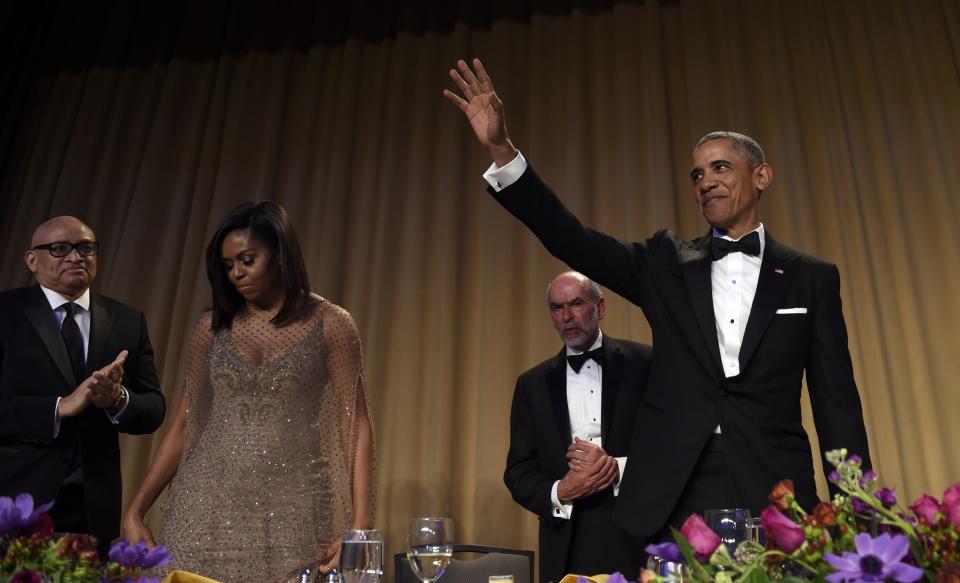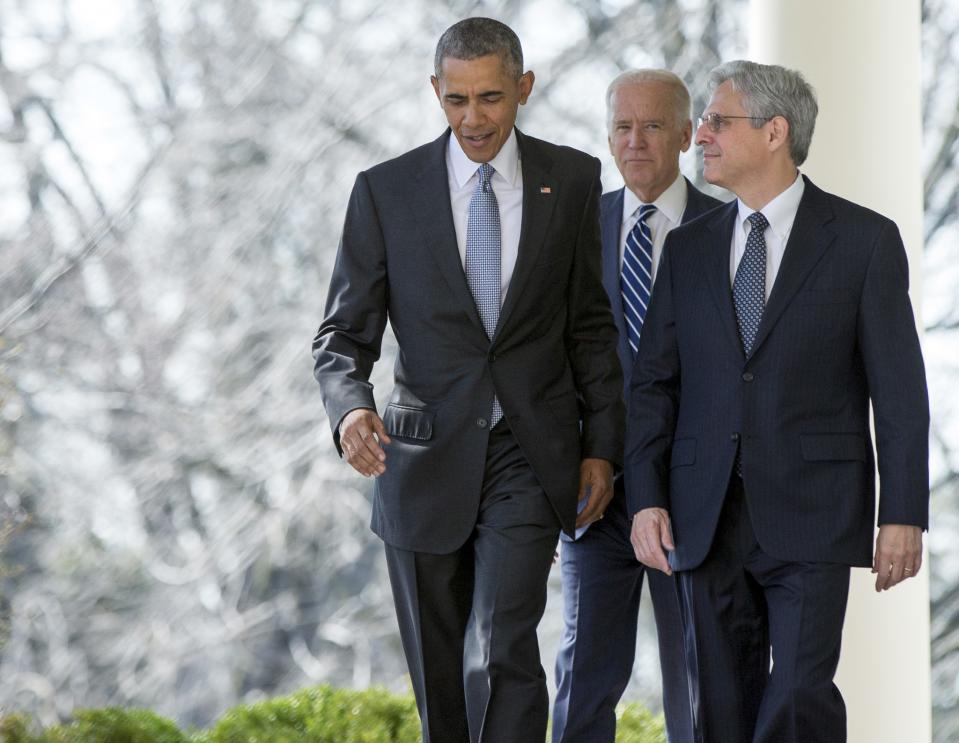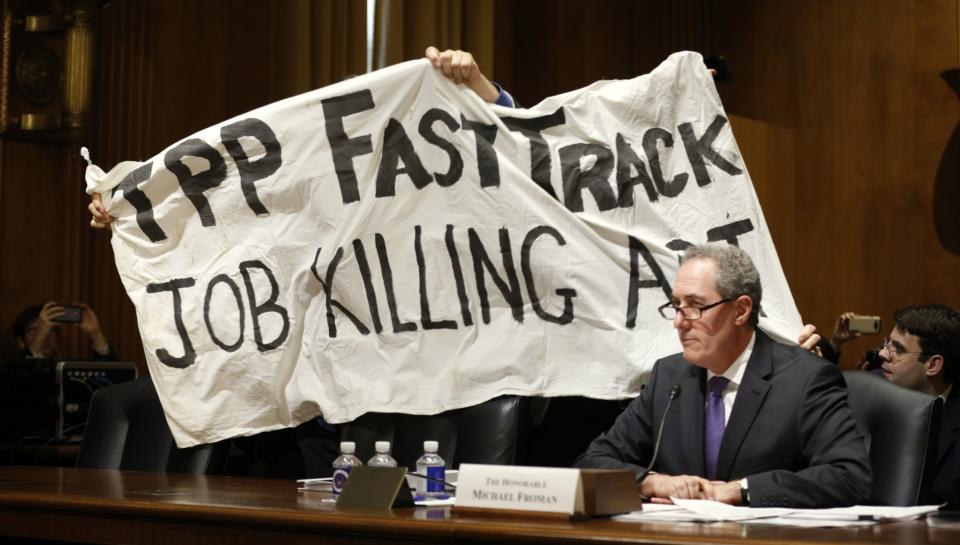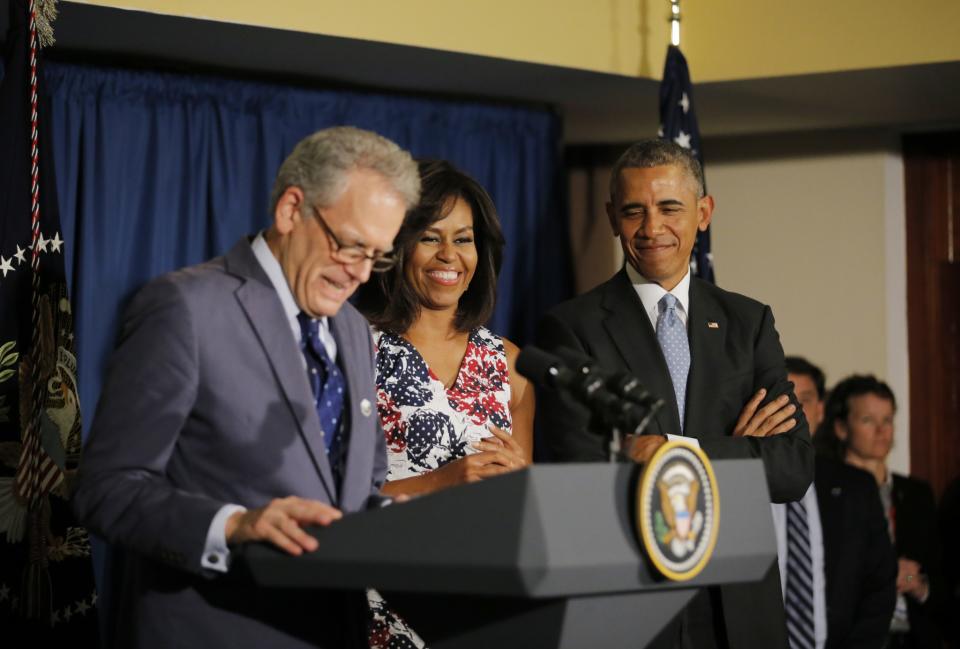The Last 100 Days: Pouring Cold Water on the Lame Duck edition

Ever since the administration of Franklin Delano Roosevelt, presidents have been judged on the successes they notch during their first 100 days. Now, as Barack Obama prepares to end his historic turn on the political stage, Yahoo News is running The Last 100 Days, a look at what Obama achieved during his consequential presidency, how he navigates the struggles of his last months in office and what lies ahead for him after eight years filled with firsts. We will also look at how the country bids farewell to its first African-American president.
It’s not a literal 100 days — Obama leaves office in late January 2017.
And it won’t all be about policy. As Obama himself is fond of noting, he also spent his two terms as father to his daughters, Malia and Sasha, and husband to first lady Michelle Obama. And even without much input from the White House, the cultural landscape shifted dramatically over his two terms on issues such as gay rights.
And then there’s the way the president sees the presidency — not just his tumultuous years at 1600 Pennsylvania Ave., but also the institution and its relationships (for better or worse) with other branches of government and with the news media.
In this eighth installment, we look at what Obama hopes to yet accomplish as a lame-duck president in the lame-duck session of Congress.
_____
There’s no single, authoritative explanation for how the language of American politics acquired the expression “lame duck,” a term that originated in 18th century London finance to designate an investor or broker who could not pay his debts.
But according to the “Political Dictionary” of the late William Safire, an expert on language, the modern meaning appears to date to 1910, when the Nation magazine described lawmakers who lost on Election Day as “lame ducks in the sense that they have been winged, but hope to preen their plumage again.”
And there’s general consensus that the first president to get the label was Calvin Coolidge, in May 1926, when the Appleton Post-Crescent of Wisconsin ran a piece called “Making a Lame Duck of Coolidge.” (If Coolidge objected, he did not hold much of a grudge against Wisconsin, where he spent the summer of 1928.)
Today, the expression is understood to apply to sessions of Congress right after an election but before the next crop of legislators has taken the oath. It also varyingly applies to a president in the waning days of his term: either after the midterm elections six years into a presidency or between the day voters pick a new president and the day that new commander in chief is sworn in.
Lame-duck President Obama heads into his final lame-duck session with his legacy on his mind and major unfinished congressional business on his plate — most of which is likely to remain unfinished by the time Hillary Clinton or Donald Trump takes office on Jan. 20.

Back in May, at the White House Correspondents’ Dinner, Obama acknowledged his metaphorical lamed-waterfowl status and used it for laughs, joking about the Republican opposition he has faced since his inauguration in 2009.
A couple of weeks later, the president vowed to keep pushing ahead with executive actions where the Republican-held Congress refused to act.
“They keep on waiting for this whole lame-duck thing to happen,” he said in a speech at the White House United State of Women Summit. “Let me tell you. It will happen as soon as I’ve elected a really good successor to carry on our policies.”
Aides say the president will press ahead in his final months with executive actions on a wide range of subjects, from closer ties to Cuba to fighting climate change.
But joking or defiant, Obama has a lame-duck problem: Many incomplete legacy defining achievements are almost within reach but will depend on action from a Congress that shows no inclination to hand him any end-of-term victories.
The White House would love to see Congress approve the Trans-Pacific Partnership (TPP), confirm Merrick Garland to the Supreme Court, confirm career diplomat Jeffrey DeLaurentis as the first ambassador to Cuba, and make progress on criminal justice reform. That is all in addition to averting a government shutdown by passing annual spending measures.
A senior Republican Senate aide, asked to handicap prospects of action for those priorities, painted a glum picture for the White House. TPP? “Hilarious (see, e.g., Hillary Rodham Clinton).” Garland? “Still no.” DeLaurentis? “No.” Criminal justice reform? “Maybe some House action, but no.”

“Keep in mind, the lame-duck session is likely to be about three weeks. Any of those issues would take at least a week. At least,” said the GOP aide, who spoke on condition of anonymity. “And we still have to fund the government.”
Obama has talked about making a strong push to get the TPP trade agreement — his top unfinished foreign policy priority — through Congress when lawmakers return for a few weeks in November and December.
Supporters of the accord at the White House and in Congress point to votes last year on granting the president enhanced authority to negotiate the deal. The key Senate vote went 60-38, while the House approved the proposal 218-208.
Polls show that a majority of Americans support international trade. But both Trump and Clinton oppose TPP, as do a majority of Democrats. Even if Republican leaders were to bring up the agreement for a vote (and there’s no sign they’re especially eager to do so), would Republicans agree to give Obama a victory, even if it’s one that advances trade?
“We, the United States, have to lead, and our leadership requires us to pursue high-standard, innovative initiatives like the Trans-Pacific Partnership,” Secretary of State John Kerry warned Wednesday, arguing that rejecting TPP would harm America’s global standing.

On Thursday, Republican House Speaker Paul Ryan, a fervent TPP supporter, declined to discuss prospects for action on the agreement. “But if you’re talking about damaging U.S. leadership in the world, look at the Obama administration’s foreign policy,” he told reporters at a press conference, dismissing the Obama administration’s argument. “I rest my case on that.”
And Republican Senate Majority Leader Mitch McConnell told reporters Thursday that trade had become “politically toxic” and that “I believe if it [TPP] were brought up this year, [it] would be defeated.”
Meanwhile, Senate Republicans show no sign of bending to Democratic calls to hold hearings on Garland’s nomination, which Obama announced on March 16, and proceed to confirmation votes.
“The next president will be filling that vacancy, and we will just have to see who that is,” McConnell said Thursday.
Lame-duck sessions are sometimes used by outgoing legislatures to take politically toxic votes after the voters have already weighed in. Some analysts say that if Clinton were to win the White House and Democrats the Senate, for example, then approving a relative centrist Supreme Court nominee like Garland might look like the better play for Republicans in Congress. Otherwise they’d risk an even more liberal jurist filling Antonin Scalia’s seat.
Obama’s nomination of DeLaurentis, first reported by Yahoo News on Tuesday, faces GOP obstruction as well, though not because of any objection to his qualifications for the post. Instead, Republicans have cast the choice as a referendum on the president’s historic outreach to the former Cold War enemy 90 miles off Florida’s coast.
“Rewarding the Castro government with a U.S. ambassador is another last-ditch legacy project for the president that needs to be stopped,” Republican Sen. Marco Rubio said Wednesday after DeLaurentis’ nomination.

The White House had anticipated the criticism.
“We have such a basic difference on that,” Ben Rhodes, Obama’s deputy national security adviser, told Yahoo News. “To us, the concept that it’s a reward for a country to have an ambassador makes no sense. On the contrary, having an ambassador gives you a higher profile, a higher-ranked advocate for what America cares about, whether that’s bilateral cooperation or whether that’s speaking out for human rights.”
But that won’t clear a path to confirmation.
Obama has made clear that his post-presidency will shine a spotlight on criminal justice reform. And the issue has made some bipartisan headway in Congress. But the odds are long that lawmakers will do much when they return after the November election.
“We do know that we have more work to do to talk with our members about the merits of criminal justice reform,” Ryan said Thursday. “There are a lot of our members who just have not looked into this issue well enough, and it’s those undecided members who have not formed opinions yet that we’re going to be communicating with in the weeks ahead.”
McConnell sounded a darker note on the same day Ryan spoke: “With regard to the criminal justice issue, as you probably know, it’s very divisive in my conference,” he said. “Whether we can take up something that controversial, with that amount of limited time available, I doubt.”
McConnell suggested that there was bipartisan interest in moving forward in the lame-duck session on several health-related measures, including regenerative medicine, precision medicine and the fight against cancer. And he played down the impact of the president-elect on the last days of this Congress.
“Look, we don’t know who’s going to win in November. But no matter who does win in November, we still have the same government in place until the end of the year,” he said. “And we need to accomplish as much as we can for the American people in the limited amount of time we have left.”
It just won’t be as much of Obama’s agenda as the White House hopes.



